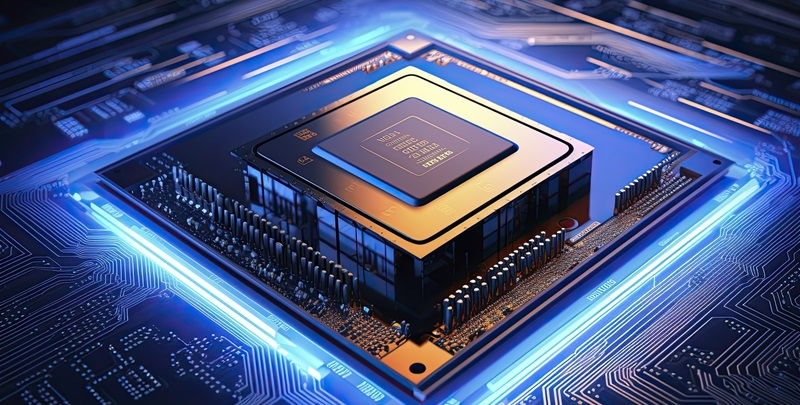In an exciting update for gaming enthusiasts, Intel has expanded its Application Performance Optimization (APO) technology beyond the newest Raptor Lake Refresh chips on our best processors list. Previously limited to the latest processors in the 14th generation, Intel has now revealed that APO will be brought to select 13th-gen (Raptor Lake) and 12th-gen (Alder Lake) CPUs as well. This move signifies a significant step forward in improving gaming performance for a broader range of Intel users.
Explanation of APO and its Purpose
Application Performance Optimization (APO) is a cutting-edge technology introduced by Intel with its 14th-gen CPUs. Designed to optimize supported games and boost frame rates, APO taps into the potential of efficiency cores in the CPU to deliver enhanced performance in gaming scenarios and resource-demanding applications.
Initial Limitation of APO to New Processors
Initially, Intel stated that APO would be exclusive to the new processors only, leaving owners of previous generations without access to this performance-enhancing technology. However, Intel has now broken the barrier and announced its plans to bring APO to select 12th-gen and 13th-gen CPUs, much to the delight of Intel users worldwide.
Announcement: APO Arrives on 13th-gen and 12th-gen CPUs
In a move that showcases Intel’s commitment to enhancing user experiences, the company has revealed its decision to extend APO support to certain 13th-gen (Raptor Lake) and 12th-gen (Alder Lake) CPUs. This means that gamers and enthusiasts using these processors can also benefit from the performance boost provided by APO.
Maximizing Efficiency Cores with APO
To understand the impact of APO on gaming performance, it is essential to grasp how it utilizes the efficiency cores in the CPU. Typically, these cores operate at lower clock speeds during gaming, resulting in potential performance limitations. However, APO harnesses the power of these efficiency cores, significantly improving their performance and effectiveness.
Measurable Performance Improvements
Tested on 14th-gen CPUs, APO has showcased remarkable performance improvements in various gaming scenarios. In some instances, APO has nearly doubled the speed of frame rates, delivering a noticeable boost in overall gaming performance. While the primary performance cores remain the workhorses for demanding applications, having efficiency cores run at higher clock speeds, such as 2 GHz instead of 1 GHz, unlocks new potential and enhances user experiences.
Significance of Efficiency Cores
Although performance cores handle the brunt of the workload during gaming sessions and other resource-intensive tasks, the importance of efficiency cores cannot be understated. By increasing the clock speed of these cores, APO ensures that the system’s response time and performance in specific scenarios is noticeably improved. This advancement becomes particularly relevant for gamers seeking optimized performance without sacrificing efficiency.
Benefits for 12th-gen and 13th-gen CPU Users
The inclusion of APO technology in 12th-gen and 13th-gen CPUs opens up a realm of benefits for Intel users. Gamers, in particular, will experience improved frame rates, reduced input lag, and enhanced overall gaming performance. The addition of APO to older processors expands Intel’s commitment to providing a holistic experience to its user base.
Supported Games for APO
Currently, APO supports a growing list of PC games. Intel confirms that 14 games soon to be compatible with this technology include popular titles like Rainbow Six: Siege, Metro Exodus, Guardians of the Galaxy, F1 2022, Strange Brigade, World War Z, Dirt 5, and World of Warcraft. As support for APO widens, gamers can anticipate even more remarkable performance boosts in an increasing number of games.
Future Expansions and Potential Benefits
Looking ahead, it is essential to consider the potential for APO support in a broader range of PC games. As the momentum for APO builds, it is expected that Intel will continue to expand its compatibility with a variety of popular gaming titles. With the doubling of frame rates witnessed in APO tests, the performance-enhancing benefits are undoubtedly worth pursuing, and it is encouraging to anticipate its broader integration in the future.
Intel’s decision to extend APO technology support to older CPUs showcases the company’s commitment to delivering an exceptional gaming experience for its user base. APO’s ability to harness the potential of efficiency cores and maximize their performance brings tangible improvements in gaming performance and response times. While initially limited to newer processors, the expansion of APO to select 12th-gen and 13th-gen CPUs opens up exciting possibilities for gamers seeking optimized performance without the need for an immediate processor upgrade. With the list of APO-supported games growing steadily, it’s safe to say that Intel users have much to look forward to when it comes to boosting their gaming experiences.

